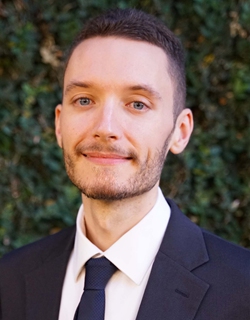February 24 marks the anniversary of the Russia-Ukraine conflict, which has been ongoing for two years with no end in sight. Why can’t the conflict be resolved? As it continues, has the West’s mentality of “defeating Russia” evolved? How does the conflict impact global geopolitical patterns? On the two-year anniversary, the Global Times (GT) collected views within the US and Europe.
In the fifth interview of the series, Ben Norton (Norton), founder and editor of Geopolitical Economy Report, an independent news outlet, shared his views. He emphasized that the control of the US and the West is the root cause of the inability to stop the Russia-Ukraine conflict.
GT: The Russia-Ukraine conflict has been ongoing for two years. Why is there still no end in sight?
Norton: The problem is that the Western governments in NATO do not want the conflict to end. And the US has made it clear that its goal is to weaken Russia. The US Defense Secretary, Lloyd Austin, said he “wants to see Russia weakened.” And we’ve seen that there have been repeated attempts at negotiating a cease-fire going back to the very beginning of this conflict. There is so much evidence showing that Russia wanted this war to end early on.
In fact, Russia did not even want this war. If we go back to look at what happened in late 2021, the Russian government repeatedly asked for written security guarantees from NATO and the European Union. They all refused to give Russia written security guarantees. And they refused to say that Ukraine would not join NATO. From Russia’s perspective, Ukraine joining NATO is an existential security problem.
Everything that happened in Ukraine was completely predictable. The US knew the risks of expanding NATO up to Russia’s borders. It continued pushing and pushing, causing this war.
At the end of the day, what this shows is that it’s the US that is fundamentally responsible for this conflict. The US sponsored the 2014 coup that overthrew Ukraine’s democratically elected government. The US has opposed all efforts to bring about peace. This has also significantly hurt Europe, not just Ukraine. Europe is suffering the consequences. The US is one of the only countries that is benefiting.
GT: Do you think the US and Europe are tired of the Russia-Ukraine conflict?
Norton: We can’t speak about the US and Europe as a unified bloc. Although they are allies, there are a lot of differences. A few countries want this conflict to end. However, other countries, for example Poland, which is very hawkish, want the war to continue.
There are still very significant differences inside NATO, and many Western governments are not in agreement about what to do in Ukraine. However, this war has further subordinated Europe to the US, and it has strengthened the US hegemony in Europe. European think tanks are saying that European countries are becoming vassals of the US, like going back to the medieval era of feudal relations, and Europe is losing its sovereignty.
The US is gaining more political, military and economic control because Europe is relying on the US for its security, although, supposedly, in many ways, the US is actually hurting European security. But in terms of military relations in NATO, the US is the leader and Europe relies on the US.
GT: How long can military aid from the US and Europe to Ukraine continue?
Norton: It’s impossible to predict exactly how long, but I do not think that military aid will continue for much longer because there are already a lot of protests going on in the US and Europe. Many people oppose sending more and more weapons and military assistance to Ukraine. And many people are saying that there should be a peaceful resolution and diplomatic negotiations to end this conflict after Western powers have already sent tens of billions of dollars in weapons.
When US Treasury Secretary Janet Yellen was asked if the US could fund the Russia-Ukraine conflict and the Israel-Palestine conflict at the same time, she said “Absolutely.” However, there may be limitations in the Western industries that produce military technology, which could impact the ability to fully support both conflicts at the same time. In recent decades, in particular, in the neoliberal era with the rise of neoliberal economics, the US and Western countries’ industrial sectors have weakened.
In the US, there are reports that the US may not produce all of the military equipment, ammunition, shells and other materials that are to be sent to both Ukraine and Israel.
GT: What impact has the Russia-Ukraine conflict had on the image of the US?
Norton: The US always tries to portray itself as the leader of the world with this very arrogant hegemonic mentality.
Many people in the Global South, which represents the global majority, can now see that the US is not trying to bring about peace. It’s not trying to encourage negotiations for peace talks. This isn’t a surprise for many people, because we know that the US has been at war for basically all of its history. It comes as no surprise to see that the US is a war-mongering power that wages war around the world.
The US is willing to sacrifice its allies in order to advance its geopolitical interests. And there’s a phrase that has become popular: The US and NATO are willing to fight to the last Ukrainian because it’s not the US soldiers who are dying. It’s not NATO that has soldiers who are dying. It’s Ukrainians who are dying. And the US is benefiting. Although the US is seen as more of a European ally, it’s also seen as dominating Europe. And a lot of people in Europe are not happy about that. However, at the same time, internationally, more and more people can see that the US is a force for instability. Instead of promoting peace and stability, it is promoting more conflict and war.
GT: What is your opinion on the continuous hype of the “Russian threat” by American media and politicians?
Norton: We should keep in mind that in the US, the war in Ukraine is not very popular with a lot of people. The majority of people in the US want peace talks to end the conflict. This is also becoming a political issue.
However, unfortunately, the reality is that in the US political system, there is no option for peace. And the reality is that the US is not really a democracy. The US is very undemocratic, and the political system is very corrupt, and it’s controlled by money. In the US, there are two options, which are both pro-war parties, the Republicans and the Democrats. They both support war and neither one is for peace.
Most Americans simply want to have better economic livelihoods and a lot of people in the US are frustrated because the US government does not spend money on social services to help people.
Meanwhile, there is growing poverty, and there is growing homelessness. The US government has abandoned them and has failed to address these issues. The US government is only fixated on maintaining a global empire and waging war around the world. This is true of both political parties. So I think a lot of people in the US are very frustrated with the political system. That’s why, in every single presidential election, roughly half of the population does not vote in the election or in the midterm elections.

Ben Norton. Photo: Courtesy of Norton
GT: Do you foresee a cease-fire happening in 2024? What factors will affect the conflict this year?
Norton: It’s very difficult to predict what will happen because the reality is that many people—the majority of people in Ukraine—want diplomatic negotiations to end the conflict.
Now, the situation in Ukraine is becoming desperate because the Ukrainian military is running out of ammunition. It’s running out of weapons, and it’s running out of soldiers. We’ve seen that the Ukrainian military is now trying to pressure Ukrainian refugees living abroad in other countries to come back to Ukraine in order to fight in the war. So the Ukrainian military is simply running out of the resources that it needs. At some point, Ukraine will have to come to a political agreement. That’s why the US policy is so destructive, and it’s the Ukrainian people who are suffering.
GT: Chinese Foreign Minister Wang Yi reiterated China’s position on the Russia-Ukraine conflict at the Munich Security Conference. What role can China play in promoting peace?
Norton: I think China is a very important player on the international stage, pushing for peace. China can play a very important role, and China has already played a very important role in encouraging peace, not only in Ukraine but around the world. We’ve seen that China has become an important diplomatic leader, encouraging peace, for instance, in West Asia between Saudi Arabia and Iran. Now, I think that China could potentially help broker negotiations. However, the problem is that the US is exercising hegemonic control over Ukraine, and the US does not want Ukraine to negotiate, especially with China overseeing the negotiations.
The problem is that when the US and NATO are willing to encourage peace and diplomacy, the war in Ukraine will end, and China could play an important role in that. But until the US stops this hegemonic mentality and this imperialist politics of trying to maintain an empire in an imperialist system, I don’t think anyone can truly bring about peace.











